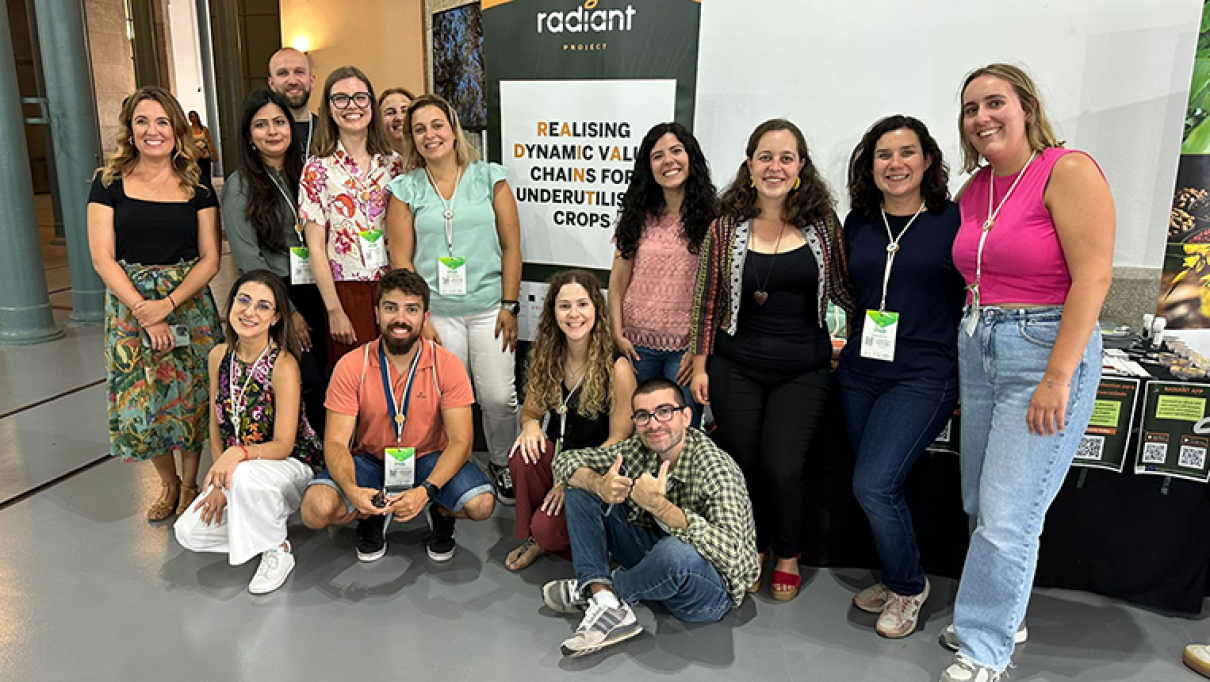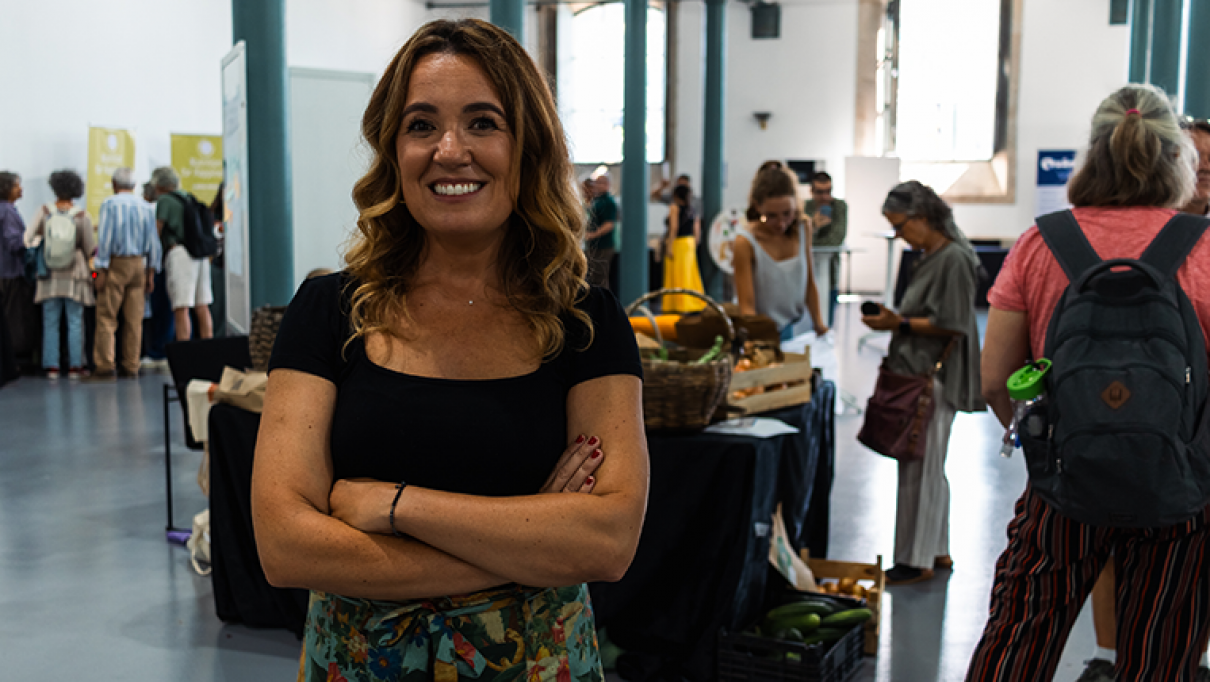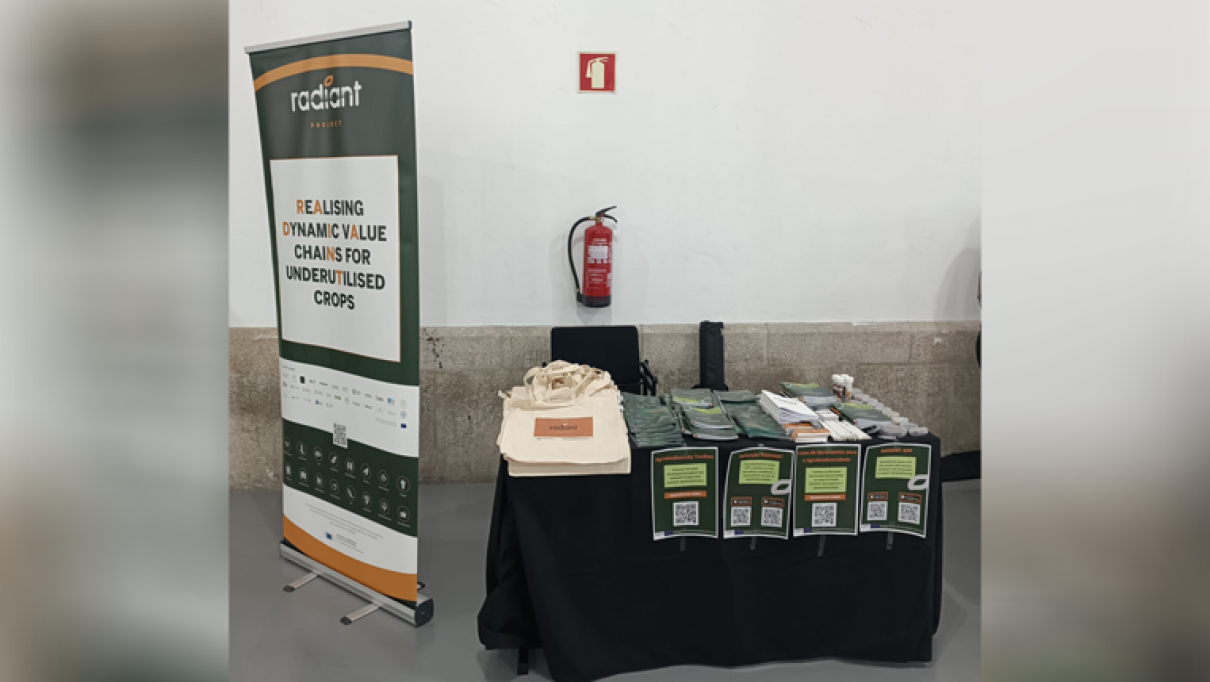RADIANT Project concludes with key contributions to sustainable agriculture in Europe
Over 40 open-access scientific publications, participatory tools (the Agrobiodiversity Toolbox), local and European networks, the involvement of more than 45 farmers, and policy proposals recognising the value of underutilised crops in the transition towards more sustainable, resilient and fair systems — this is the strong legacy of the RADIANT project, coordinated by the Centre for Biotechnology and Fine Chemistry (CBQF) at the Faculty of Biotechnology (ESB) of Universidade Católica Portuguesa in Porto, which is formally concluding at the end of August 2025.
Marta Vasconcelos, CBQF researcher and project coordinator, stated: "RADIANT celebrated agrobiodiversity, gave value to underutilised crops, and planted the seeds of a more resilient and sustainable future for Europe. It was a privilege to coordinate this closing stage alongside so many inspiring people and institutions."
The final General Assembly of the European project RADIANT – Realising Dynamic Value Chains for Underutilised Crops (project website), funded by Horizon 2020, took place on 21 July 2025 at Universidade Católica Portuguesa in Porto. The event brought together consortium partners to assess the project’s results and plan its future developments. It marked a moment of reflection, sharing, and celebration after four years dedicated to enhancing the role of underutilised crops in European agri-food systems.
Over two days of working sessions, participants presented significant progress in areas such as participatory characterisation of local varieties, value chain mapping, best agricultural practices, and public policy recommendations to support agricultural biodiversity.
RARE FOOD FAIR: Rare flavours, shared knowledge
Alongside the General Assembly, the RARE FOOD FAIR took place — a public event dedicated to food diversity, local gastronomic culture, and the role of NUS (neglected and underutilised species) in sustainable food systems — at the Alfândega Congress Centre in Porto. The event brought together producers, researchers, students, and consumers, offering a rich programme including product tastings, cooking demonstrations, and market stalls.
Products such as acorn flour, green leafy juices, organic honey, innovative snacks, and legumes were among the highlights. The fair generated significant public and media interest and helped spotlight the importance of agricultural biodiversity and forgotten species in addressing climate change, biodiversity loss, and food insecurity.
Among the exhibitors were: CMPorto, NutritionforHappiness, APN, PortugalFoods, Herdade do Freixo do Meio, Bere Barley (UK), Sementes do Futuro, Tapada da Vilariça, Mercearia Sem Saco, BioFontinhas, Season Garden (Hungary), Nadar Climate Positive Spirits (UK), CONAT, Occidens, DIKOT (Greece), Quantica Editora, German Institute of Food Technologies (DIL), NaturApis, Ecotrophelia Portugal winners (UCP), among others.
The closing activities of the project reinforced the role of underutilised crops in promoting food sovereignty, climate resilience and agricultural diversification, positioning RADIANT as a flagship initiative in the European context.
Categorias: Escola Superior de Biotecnologia Centre for Biotechnology and Fine Chemistry
Tue, 26/08/2025




